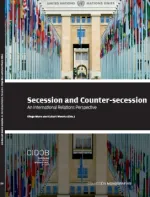The two Quebec independence referendums: Political strategies and international relations

Quebec is exceptional among all cases of nationalist movements in liberal democracies, as governments formed by the secessionist Parti Québécois (PQ) have organised two independence referendums (see Table 1). Thus, the Quebec case offers particularly fertile ground for examining how a secessionist party seeks to convince a majority of voters to support independence in a referendum campaign while a host of other actors (within the province, across the country, and around the world) make a case against secession. The unique Quebec experience with two independence referendums reveals something important: each of the referendums had its own political dynamic, featuring its own set of secessionist strategies and counter-strategies as well as specific international contexts. Indeed, the political dynamics of the referendums of 1980 and 1995 were shaped by the preceding 15–20 year period. These “slices of history” informed how secessionist actors sought to prevail in each of the referendums.